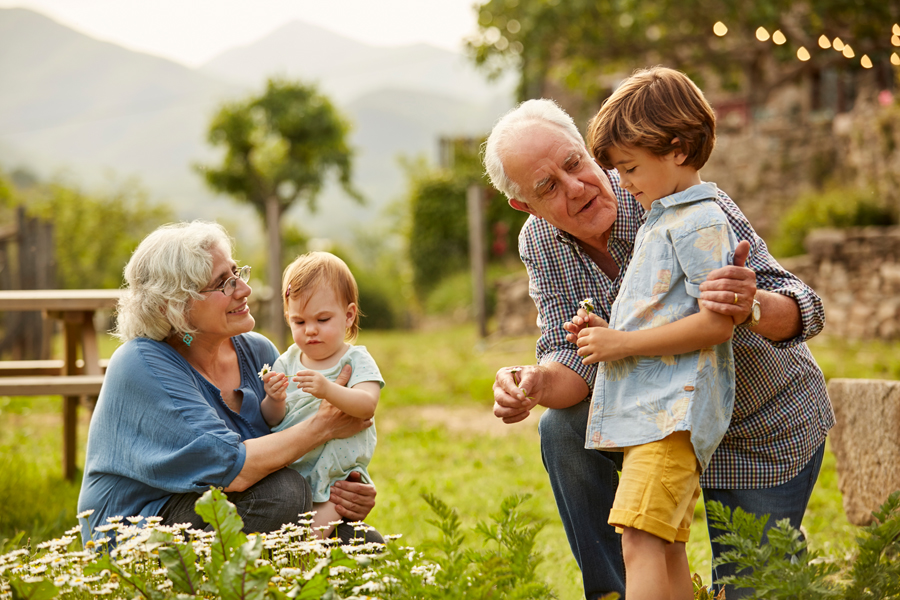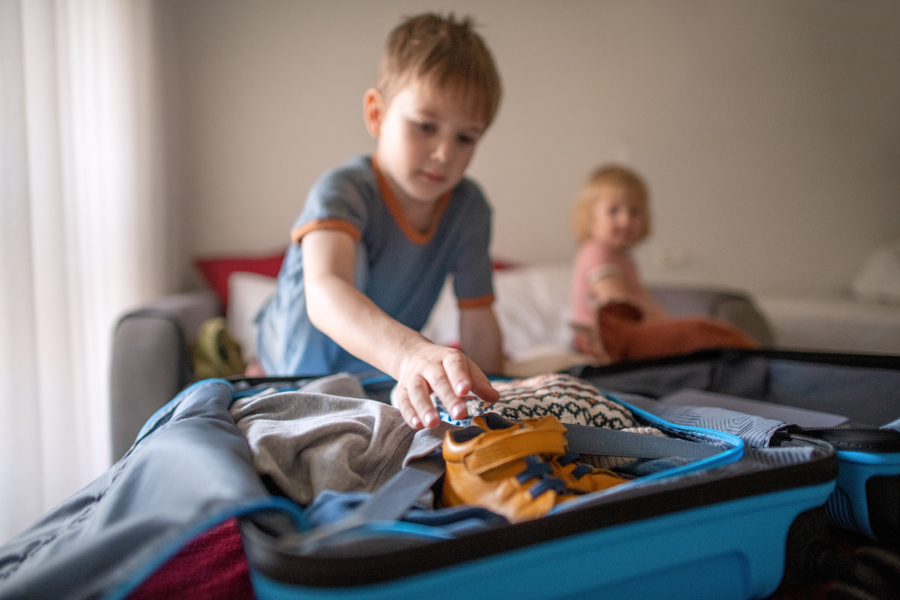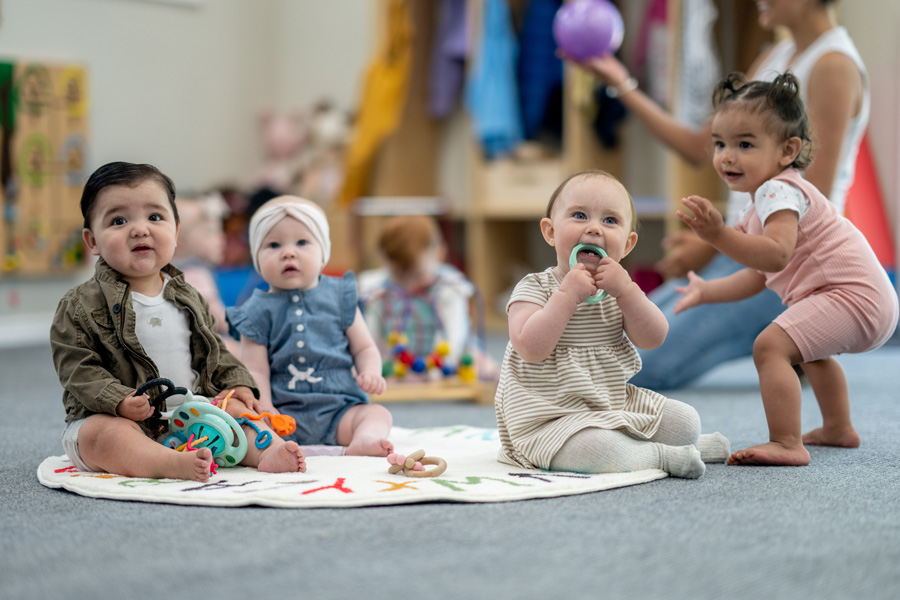Parenting
-

C 1284-14
Disciplining Your Grandchildren
How do you teach children to behave appropriately, even when you’re not around? The key is effective, consistent discipline. Children are most likely to be well-adjusted when you combine warmth and love with clear rules and consistency. Your grandchildren need to understand that you love them, but they also need to know that there are rules they must follow and consequences for breaking those rules. Effective discipline requires lots of patience and understanding.
Diane W Bales
|
-

C 1284-01
Moving Your Grandchildren into Your Home
Raising your grandchildren can be both rewarding and challenging. The transition to this new relationship can be stressful for the entire family. While your grandchildren are getting used to a new home and new rules, you must readjust to the responsibilities of parenting. The adjustment will take time and patience on everybody’s part. But with some planning, patience, and a lot of understanding, you can overcome the challenges of raising your grandchildren. Some of the most common challenges are discussed below, along with suggestions for making the adjustment process easier for the whole family.
Moving to a new home brings a variety of emotions and feelings for any child. Like adults, children grieve for the people, places, and things they are leaving behind. Your grandchildren’s move into your house also may be complicated by other stresses, such as the loss of regular contact with a parent.
Don’t be surprised if your grandchildren express sadness, anger, anxiety, or other negative feelings during the transition to your home. Treating your grandchildren’s feelings with sensitivity will help make the adjustment a little easier. Keep in mind that children of different ages will need different kinds of support to deal with this transition.
Diane W Bales
|
-

When you take on the responsibility of raising grandchildren, you may have to navigate the tricky question of whether and how to help your grandchildren stay connected with their parents. For some grandchildren, video calls or visits with their parents may help them adjust to the change of living in your home. For other grandchildren, visits or calls may add to the children’s stress, or may put the children in a vulnerable position. Every family is different. You need to decide what will work best for your grandchildren.
Diane W Bales
|
-

C 1284-03
Managing Your Stress
Have you ever felt overwhelmed by the time and effort you put into raising your grandchildren? When you’re caring for children, it may seem like there are not enough hours in the day. Because you are spending so much time taking care of others, you may have less time to do things you enjoy. But it’s important to take care of yourself so that you have the energy you need to care for your grandchildren.
Here are some ideas for how to take care of yourself by managing your time wisely, using relaxation and exercise, taking time-outs to regroup, and joining a support group.
Diane W Bales
|
-

Handling death is always a difficult process. Experiencing grief stretches your emotional resources, and organizing details such as a funeral and burial requires time and planning. For some grandparents, the death of an adult child also means that you must accept responsibility for raising grandchildren.
The stress of so many changes at once can be overwhelming for the entire family. Many adults do not know how to explain a death to children, and are unprepared to help children grieve the loss of a parent. But with sensitivity and compassion, you can help your grandchildren learn to cope with the death, better understand their own grief, and find productive ways to express their emotions.
Diane W Bales
|
-

No grandparent likes to imagine a grandchild being mistreated. But the reality is that children who live in a chaotic home, where chronic problems like family violence or substance abuse take place, are at high risk for abuse and neglect. As you adjust to caring for your grandchildren, you might also have to help them cope with the aftermath of abuse or neglect.
Diane W Bales
|
-

From the moment a baby is born, every experience taken in by the five senses helps strengthen the connections that guide development. No two brains are alike! Each child’s brain creates individual pathways of connections based on specific experiences. Here are some general tips you can use to help wire the brain for success.
Diane W Bales
|
-

C 1053-02
Prime Times for Learning
Research in brain development shows there are certain windows of opportunity, known as sensitive periods, when certain parts of the brain develop most quickly. These windows are prime times for learning certain skills because the brain is ready to build networks of connections in response to what the five senses absorb. Here are some of those prime times, what to expect, and what you can do to improve brain development.
Diane W Bales
|
-

All parents want their children to be smart and successful. Researchers have found that a child’s brain continues to develop long after birth. Parents can do many things to support their child’s healthy brain development, beginning before birth and continuing until their child is an adult. This publication explains some of the things you can do to ensure healthy brain development for your child.
Diane W Bales
|